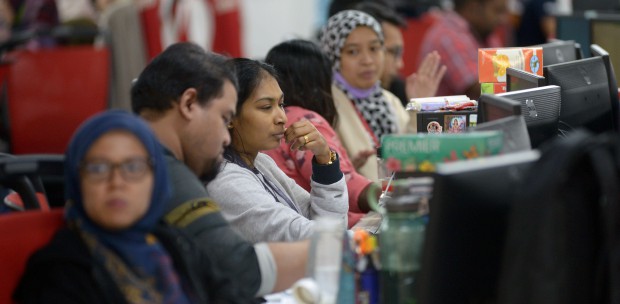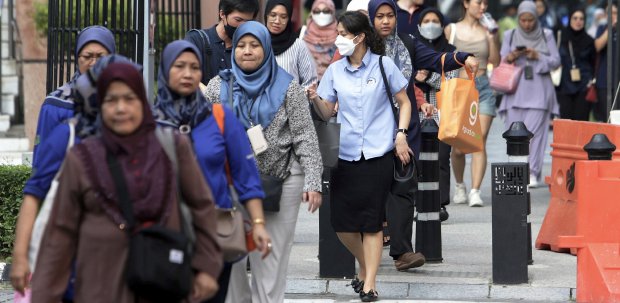ON Nov 29, the government released a white paper on the progressive wage policy.
It proposes to operationalise the policy on a trial basis involving 1,000 small- and medium-sized companies between June and September next year.
This policy will ensure a competitive salary that progressively increases as the worker demonstrates higher productivity through upskilling or reskilling.
Specifically, the policy targets local workers in the formal sector, who earn between RM1,500 and RM4,999.
The progressive wage will surely improve the quality of life and boost the productivity of low-income workers. It would narrow the income gap, entice more locals into the workforce and propel Malaysia into the ranks of high-income nations.
With more locals joining the workforce, the private sector would get closer to the government-targeted 80:20 ratio of local labour to foreign workers.
A progressive wage can relieve the government of the obligation to pump more subsidies and welfare assistance to this worker-group.
However, a progressive wage without a commensurate productivity increase might have unintended effects. For one, it would crimp company profits.
It might also encourage companies to automate or lay off young and low-skilled workers.
In an imperfect world, employees might be paid lower than their contribution to business revenue.
As such, for a start, a progressive wage should correspond to a living wage. A living wage augments a wage above the legislated minimum that would cover the cost of living.
If a figure is to be arrived at for a starting progressive wage, then the current monthly poverty-income level of RM2,589 could be a benchmark.
This figure is slightly lower than Bank Negara Malaysia's 2018 estimate of a living wage of RM2,700. Alternatively, the median wage of RM2,600 could be considered.
These figures cluster close to one another. If the higher estimate is taken, then the progressive wage will represent a meatier jump of RM1,200 over the mandated minimum of RM1,500.
For an across-the-board implementation, the government would need to entice employers to pay this hefty additional amount. This would require the government to undertake the following three strategies:
FIRST, it should go on a massive awareness campaign on the fairness of a progressive wage.
This would necessarily target all stakeholders, namely the business community, trade unions and consumer groups. Such dialogue would also afford an opportunity for the stakeholders to arrive at a consensus on what should be the starting progressive wage.
SECOND, a fair progressive wage beyond the mandated minimum could be implemented gradually, say, over five years. Such a graduated scale would be more persuasive than a one-shot exercise.
Flexibility in the approach, consideration of the capacity of businesses to absorb the increased wages, and the state of the local and global economies are vital to determine the graduated levels of a progressive wage.
This should also minimise any employment effects.
THIRD, to mute dissent, the government should provide incentives for businesses to first adopt a progressive wage voluntarily.
The government could consider tax credits, access to low-interest loans, subsidies or other forms of support for companies.
Indeed, for the pilot project, depending on scope of implementation, the government may spend between RM2 billion and RM5 billion on incentives.
Equally important is to ensure productivity-enhancing training programmes, especially for unskilled workers.
A progressive wage is moral but complex in implementation. Finding the delicate balance between fair compensation for workers and maintaining a sustainable business is a challenge.
Policymakers must take a longer-term view than worry about short-term unemployment.
Society must brace for a spike in the cost of living. Without government help and the requisite productivity increases, businesses would be tempted to pass on some of the wage increases.
That is the price we must be prepared to pay for a more equitable society.
The writer is a former public servant and a former vice-chancellor of a private university





